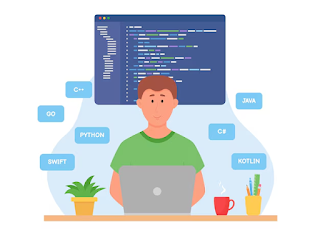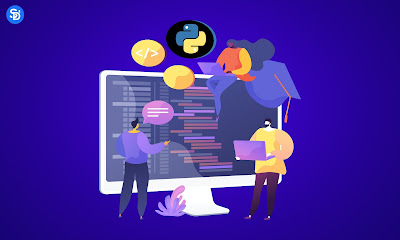Unveiling the Top 5 Python Frameworks for Developing Applications
In application development, choosing the right framework can significantly impact your projects' efficiency, scalability, and success. As a leading Python development company, we understand the importance of selecting the most suitable tools to streamline development processes and deliver exceptional results. This comprehensive guide unveils the top five Python frameworks that empower developers to build robust, scalable, and feature-rich applications.
1. Django: The Full-Stack Web Framework
Django Overview: Django stands out as one of the most popular and powerful full-stack web frameworks for Python. Its batteries-included philosophy provides developers with everything they need to build web applications, from authentication to database management quickly.
Key Features:
Built-in admin panel for effortless content management
Object-relational mapping (ORM) for seamless database integration
Highly scalable and secure framework
Extensive documentation and strong community support
Use Cases: Django is ideal for developing complex, data-driven web applications such as e-commerce platforms, content management systems (CMS), and social networks.
2. Flask: The Lightweight Microframework
Flask Overview: Flask is a lightweight and flexible microframework that prioritizes simplicity and minimalism. Despite its small footprint, Flask offers powerful features and extensions that allow developers to create web applications with ease.
Key Features:
Minimalistic design for quick prototyping and development
Extensive range of extensions for added functionality
Integrated support for unit testing
Lightweight and modular architecture
Use Cases: Flask is well-suited for building small to medium-sized web applications, RESTful APIs, and prototypes.
3. Pyramid: The High-Performance Framework
Overview of Pyramid: Pyramid is a web framework known for its versatility and high performance, offering a harmonious blend of simplicity and flexibility.
Key Features:
Highly customizable and adaptable architecture
Support for both monolithic and microservice-based applications
Built-in templating engines for efficient content rendering
Comprehensive security features
Use Cases: Pyramid is suitable for developing a wide range of applications, including enterprise-level web applications, content management systems, and APIs.
4. FastAPI: The Modern API Framework
FastAPI Overview: FastAPI is a modern API framework that leverages Python's asynchronous capabilities to deliver exceptional performance and productivity. It is designed for building high-performance APIs with minimal boilerplate code.
Key Features:
Automatic generation of interactive API documentation (Swagger UI)
Asynchronous support for handling concurrent requests
Built-in data validation and serialization
Integrated support for dependency injection
Use Cases: FastAPI is ideal for developing APIs for web applications, microservices, and real-time applications that require high throughput and low latency.
5. CherryPy: The Minimalistic Framework
CherryPy Overview: CherryPy is a minimalist web framework that focuses on simplicity, performance, and ease of use. It provides developers with the essential tools needed to build web applications without unnecessary complexity.
Key Features:
Minimalistic and intuitive API for quick development
Built-in HTTP server for standalone deployment
Support for multiple protocols, including HTTP, HTTPS, and WSGI
Lightweight and extensible architecture
Use Cases: CherryPy is well-suited for developing small to medium-sized web applications, RESTful APIs, and internal tools.
Conclusion:
As a leading provider of Python development services, we recognize the importance of selecting the right framework for your projects. Whether you're building a web application, API, or microservice, the top five Python frameworks highlighted in this guide offer the versatility, performance, and features needed to bring your ideas to life. By leveraging the strengths of Django, Flask, Pyramid, FastAPI, or CherryPy, you can streamline development workflows, accelerate time-to-market, and deliver exceptional user experiences.
Contact us today to learn more about our Python development services and how we can help you achieve your project goals.




Comments
Post a Comment